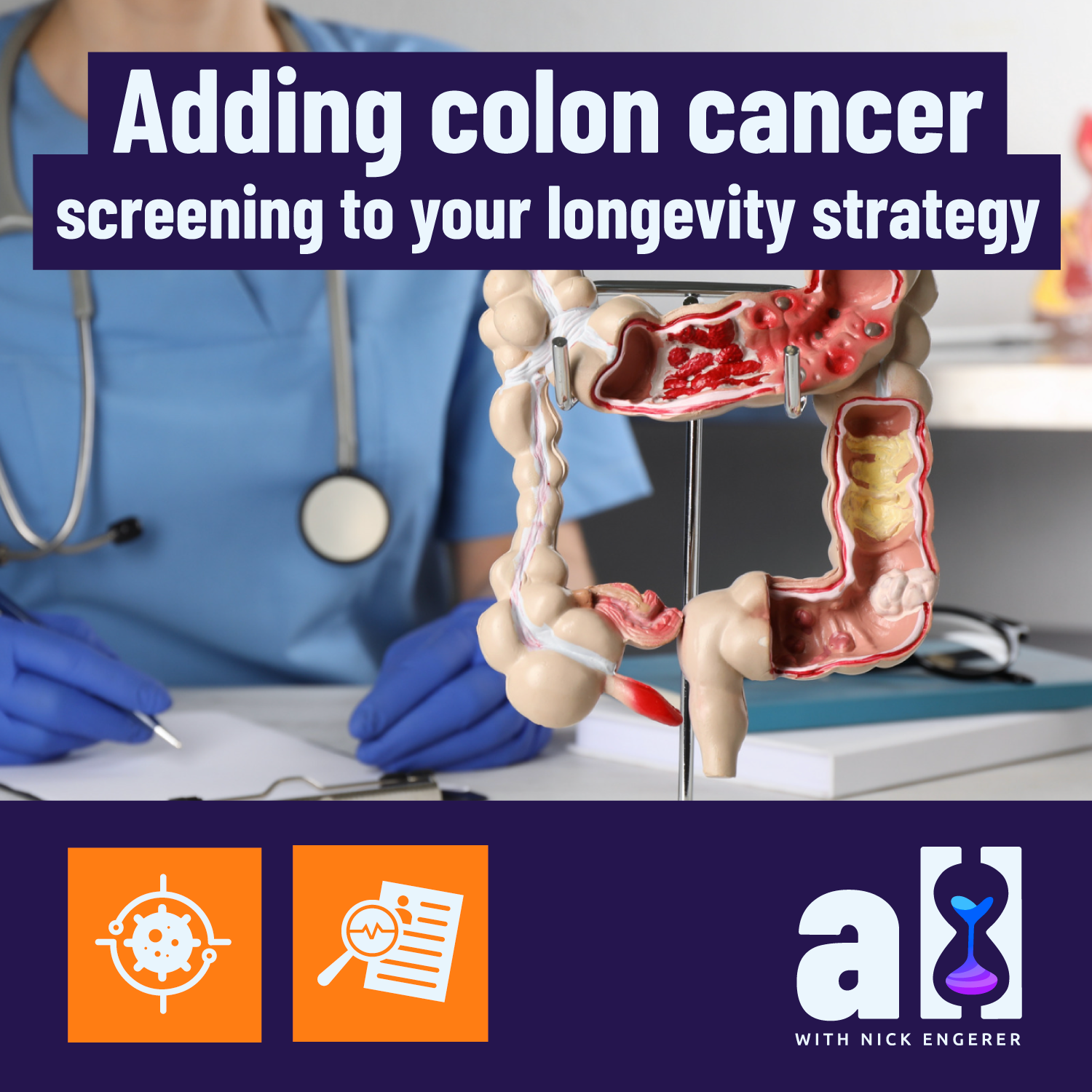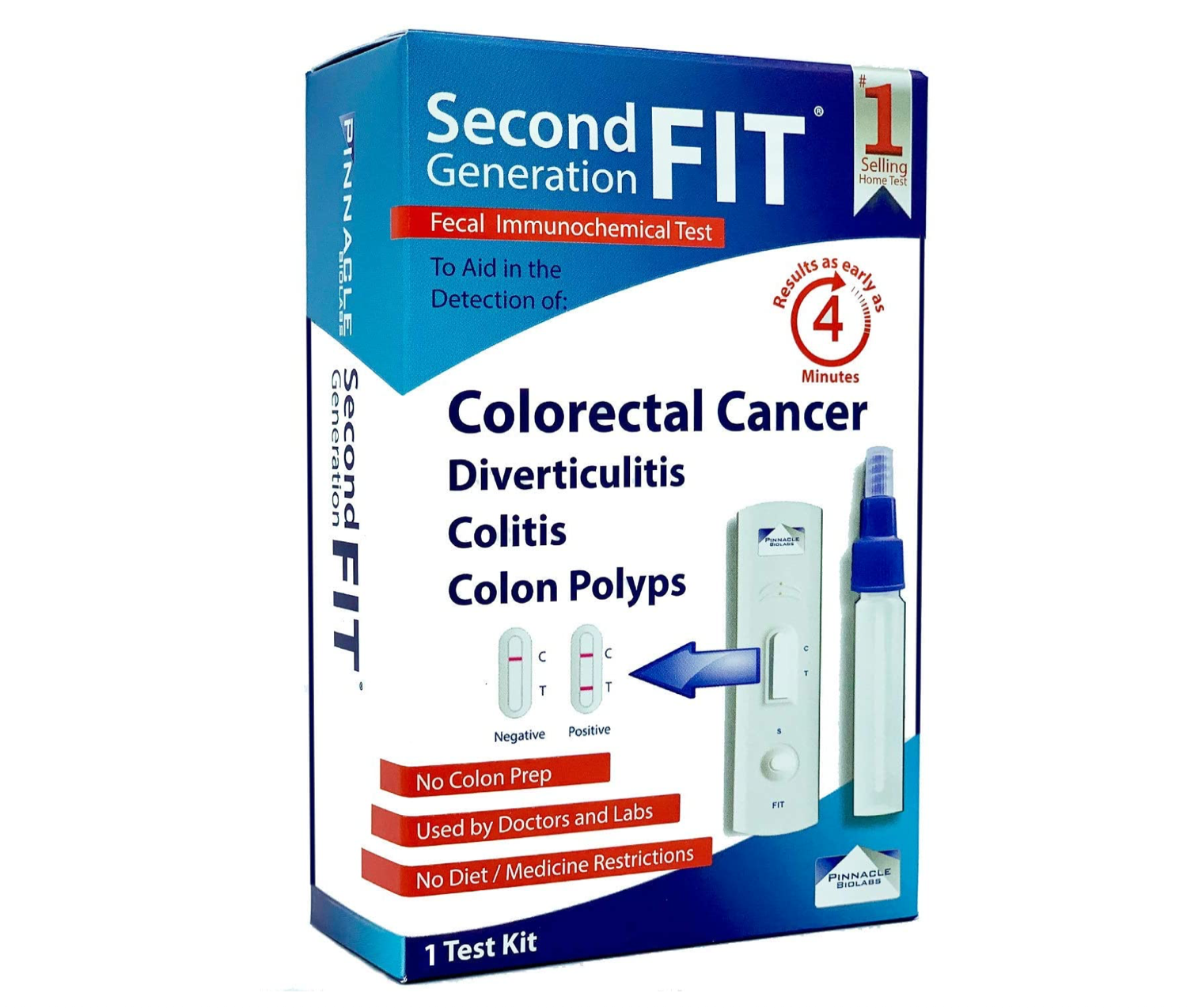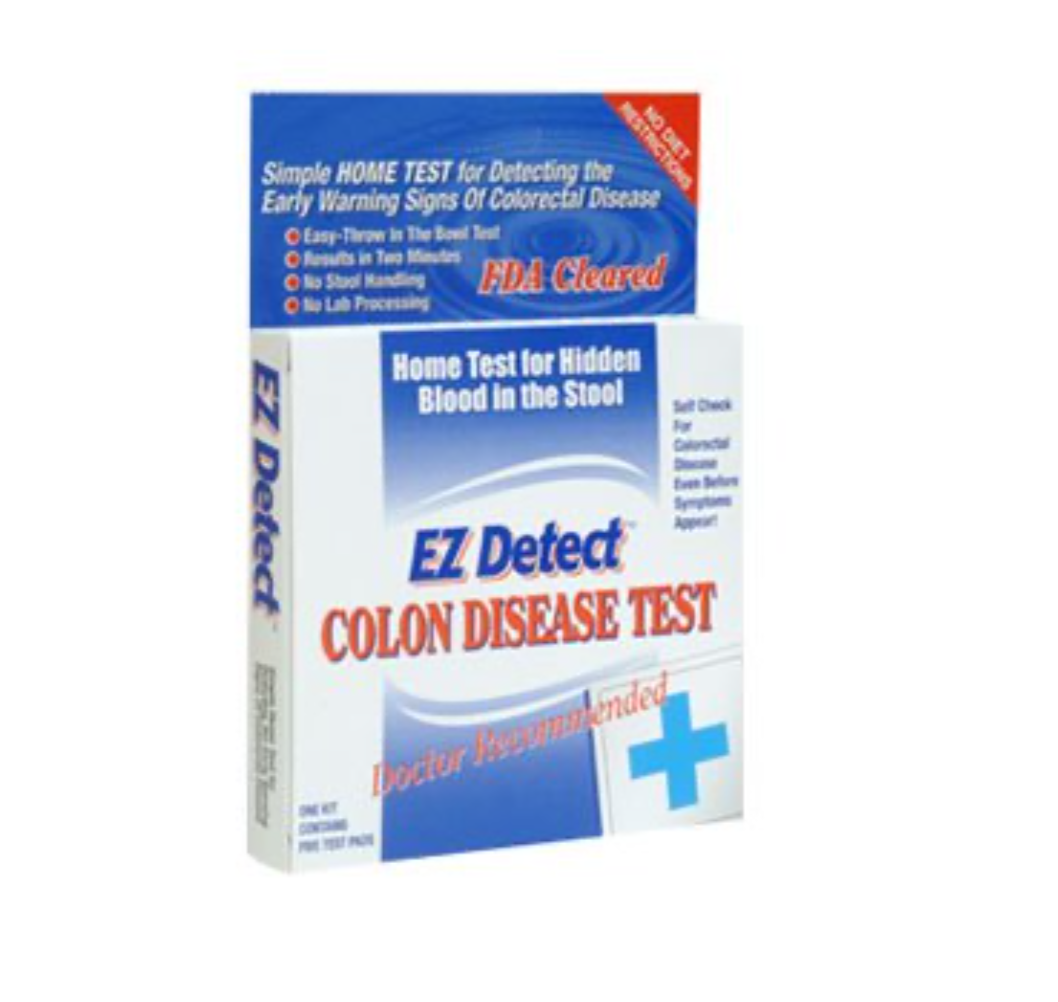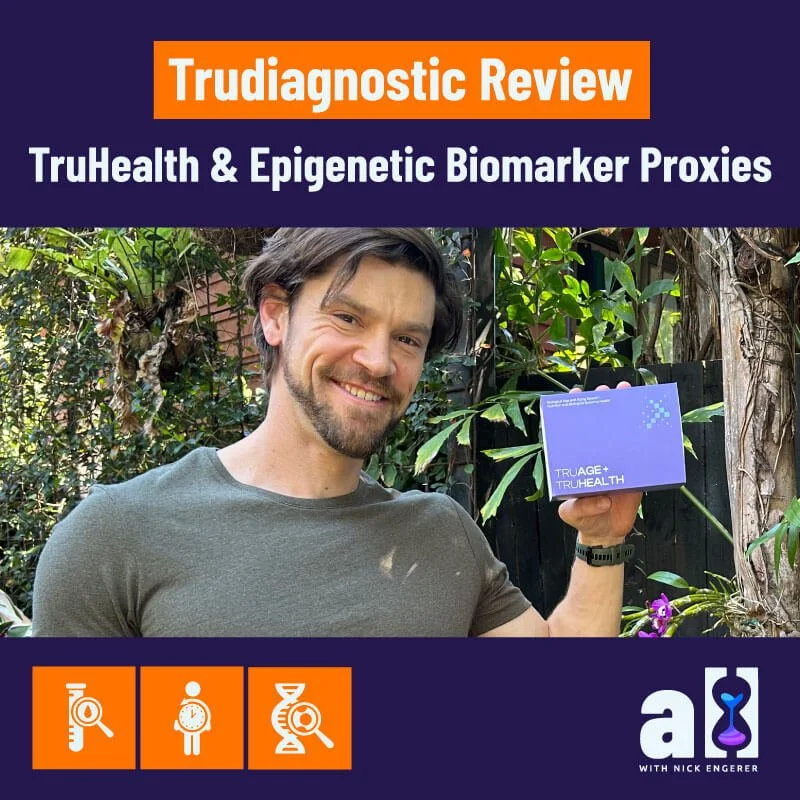Adding Colon Cancer Screening to Your Longevity Strategy
Early Disease Detection is Essential for Longevity
As regular readers of the A Longer Life will know - we stand on the precipice of incredible advances in the technologies available for measuring, halting and even reversing the aging process.
As the fusion of AI and computational power with healthcare and biological data marches forward, rapid improvements can be expected over the coming decades.
Therefore, if you’re keen on leveraging these advances, you’d better have a plan to stay healthy in the mean time!
[Timesaver Tip: If you’re not big into reading a blog post - you can skip the details and order your own at-home colon cancer test here! ]
Searches for ‘Colon Cancer Testing’ surged to a 5-year high after Chadwick Boseman’s death in August 2020. Source: Google Trends
Thankfully, modern medicine has become exceptionally proficient at treating life-threatening diseases - so long as they are caught early at the so-called ‘treatable stage’.
However, what is not entirely obvious is who is responsible for managing your access to the technologies ensuring early disease detection.
While, as we’ll discuss below, healthcare systems have begun to take on the role of providing some early screening services, you’d be quite naive to think leaving your health up to them is a bulletproof strategy.
Quite the opposite is true, in fact - ensuring your longevity requires a radical level of personal accountability and a proactive attitude.
This is to say, that longevity strategy is yours to lead, and while it should absolutely include your doctor and the broader healthcare system, it should not entirely depend upon them.
You need to know your risk factors, educate yourself on the many resources available and stay on top of the emerging technologies available for your personal risk management.
Thankfully, A Longer Life is here to help. In this post, we carve out a segment of that risk management strategy - focusing in on colorectal cancer - and will present some newly available resources at your disposal.
Early Detection of Colon Cancer is a Lifesaver
Hear more about Aaron’s journey of colon cancer survivorship on the Pelatonia podcast “One Goal”. Pelatonia is an organisation who have raised over $218M for cancer research through the sport of cycling. Pictured: Aaron Conley
Colorectal cancer is both one of the most common and most deadly (in terms of total lives lost) forms of cancer in the developed world.
It also strikes a personal chord with the A Longer Life.
While our Founder Nick’s wife was awaiting her surgery for the treatment of appendiceal cancer in late 2013, one his closest friends (Aaron, see image) was besieged by this disease at the young age of only 27 years old.
The shock of these diagnoses evoked strong motivations for exploring the ways we might contribute to the end of late stage disease diagnosis, once and for all.
And while that is a big dream, the ambition of reducing human suffering through the early detection of disease is very much at the core of A Longer Life mission.
We believe we already have most of the technologies required to ensure the long-term health of everyone who chooses to dedicate their resources to a comprehensive longevity strategy.
Colorectal cancer screening is one such resource. Let’s explore this topic - starting with, what is ‘screening’ exactly?
Cancer Screening - A Key Component of Your Longevity Strategy
The concept of cancer screening is quite topical for A Longer Life. It forms one of the pillars of our shared longevity strategy - detect disease early, while it remains treatable.
A Longer Life believes this can be accomplished through the *right* combination of medical technologies.
This of course includes detailed, full body MRI imaging as central to this objective.
However, full body MRI imaging has limitations with respect to its sensitivity to certain disease types - chiefly with respect to gastrointestinal cancers, and specifically esophageal and colorectal cancers.
Therefore, in order to comprehensively screen, one must turn to alternative strategies to minimise risk with respect to the diseases not sampled. Thankfully, colorectal cancer has several screening technologies at our disposal…
Colon Cancer Screening
Outside of advanced facilities like the Health Nucleus, cancer screening is most often disease specific. Australia’s most common cancer - breast cancer - can be screened via mammogram, for example.
And thankfully, the same is true for the 2nd most common cancer in Australia (and 4th most common in the United States) - colorectal cancer.
Colorectal cancer is the result of uncontrolled growth of abnormal colon or rectal cells, which grow to form a tumour.
However, most such cancers do not immediately begin in the tumour phase, originating instead as small abnormal tissue growths (called lesions) and/or polyps.
Source: Harvard Health
The process of forming a lesion and/or polyp, followed by possible malignancy, is often associated with the release of small amounts of blood into the stool, as well as low levels of tumour DNA material in more advanced cases/recurrence.
It is from this blood and/or DNA, that currently available cancer screening technologies can detect this potentially malignant activity. Let’s dive into how that works.
 |
Colon Cancer Screening Technologies
Direct visual inspection of the colorectal (nether?) regions (e.g. colonoscopy) with biopsy (direct tissue sample) remains the gold standard for colon cancer screening.
However, over the past few years, test kits which can be completed at home have become widely available, as well as generally accepted by the broader medical community (For more, read this JAMA article).
These kits are so popular and effective, that governments in many countries have rolled out widespread test by mail kits.
Such a move has created strong market forces for driving the supply of these kits up, and the associated cost per unit downward - to the point where purchasing such kits out of pocket has become possible (we’ll come back to this point shortly!).
In the ‘test at home’ market offering, there are three primary technologies in use today. Two are tests which detect blood in the stool (known as a faecal occult blood tests [FOBT]), and the third tests for tumour DNA directly.
Review of Three ‘Test at Home’ Technologies
The current standard of care uses FOBT tests as ‘first-line screening’. These can be either the ‘guiac-based form (gFOBT)’’ or the ‘immunochemical form (FIT).”
gFOBT tests look for haemoglobin (an important oxygen carrying protein in the blood) in the stool, however it has been shown to be sensitive to diet and medications (e.g. red meat or high vitamin C intake). The requisite chemical reaction can however occur locally, meaning the test kits don’t have to be shipped back to a laboratory for the results. For example, one of these kits might involve dropping a tablet into your toilet and seeing if it turns a signalling colour.
FIT methods use an antibody reaction instead, which removes any complications from the diet (or medications), identifying human haemoglobin directly. These kits must be sent back to the lab for processing. FIT tests have become the ‘go to’ testing method for widespread use.
A third, emerging testing option is the ability to detect tumour DNA directly, with a high degree of accuracy (92%). These kits have not yet become directly available to consumer, and I won’t mention them again here.
For further reading, you can find a detailed list of pros/cons of the above three methods here
Who Should Get Tested for Colon Cancer?
The age at which the general population is recommended a colorectal cancer screening varies by who you ask. However, one trend is clear - the recommended screening age keeps getting younger.
For example, longstanding recommendations from the American College of Gastroenterology state “Men and women at average risk for colorectal cancer should be screened starting at age 50”, but go onto several caveats (45 for heavy smokers or African Americans), and even ≤ 40 years anyone with:
A first-degree relative who has had colorectal polyps or cancer
Crohn’s disease or ulcerative colitis
Lynch syndrome or familial adenomatous polyposis (FAP)
More recently, the general testing age was also dropped to 45 by two influential bodies in the US. The American Cancer Society changed its recommended screening guidelines in 2018, from 50 to 45 years citing “rising rates of bowel cancer in young and middle-aged populations.” Furthermore, the US Preventive Services Task Force also changed the age of screening to 45 quite recently (October 2020).
Should You Get Tested for Colon Cancer?
Depending on your age bracket, you may already qualify for free or subsidised colorectal cancer screenings. If this is the case - the answer is obvious, you should definitely test according to the recommended guidelines.
But what about folks under the standard age in their region of care? Should they get a test? Well, there a few factors to consider when answering this question - let’s address them.
#1 Colon Cancer Screening Tests are Inexpensive and Easily Available
With a bit of digging around online, you will likely be able to find commercially available test kits in your country. The price point on these kits is pretty outstanding, costing the user only a few bucks a month to test every year or so. Let’s take a look at four options, all available for under $70 (3x United States, 1x Australia):
Our Top Choice: LetsGetChecked
Let’s Get Checked at Home ($69 USD)
Technology: FIT
Second Generation FIT ($25)
Technology: FIT
[Alternative Link] (CVS)
EZ Detect ($12)
Technology: gFOBT
[Alternative Link] (Walgreens)
ColoVantage ($42AUD)
Technology: FIT
#2 The recommended screening age is falling
As was briefly discussed before, the recommended screening age has been on a downward trend over the past decade.
This is because colorectal cancer occurrence in young adults is on the rise, as a part of a global trend in developed countries (read more).
Consider this startling statistic: People born in 1990 onwards have double the risk of colon cancer and quadruple the risk of rectal cancer compared with people born in 1950 (source).
Concerningly, when the disease is detected in young adults, it is often at a late stage. You need only scroll back up to the top of this blog post to read about 27 year old cycling enthusiast Aaron for an example.
In his case, a fairly late (stage III) diagnosis, following him experiencing extreme fatigue on his regular rides. Chadwick Boseman was only 43 years old when he passed away, after battling colon cancer for four years (age of stage III diagnosis ~38-39 yrs).
While its not yet settled why later diagnosis is common among young adults, it is surmised they are more likely to write off early warning signs, and are also less likely to have health insurance.
None of these details are particularly important to the point being made here - individual young adults are still at risk for developing colon cancer, even if the average risk of this population is low.
Source: Bowel Cancer Australia
#3 Colon cancer screening tests are accurate and highly effective
Test at home colon cancer screening technology is highly developed, and so effective, that is has become the standard of care for early screening.
So useful in fact, the biggest challenge healthcare systems have with colon cancer screening is increasing compliance (link). Imagine that - a healthcare service where increased demand is viewed positively!
Why? Because the tests are cheap, save lives and reduce downstream costs. That’s a rare win-win for healthcare!
#4 False positive downsides are small
Positive FIT tests are about 80% accurate for detecting cancer, and positive findings only occur in about 5-8% of people.
If your test comes back positive, your doctor will likely recommend you for a colonoscopy. Colonoscopies (as Aaron addresses in the podcast) are not as unpleasant as they might first sound.
Aside from the inconvenience of missing work, and the potential costs (check your insurance policy carefully), there is very little downside ‘false positive’ test result.
Furthermore, if there is blood in your stool, but no cancer or pre-cancerous legions/polyps, there may be other health related issues revealed in the process (e.g. hemorrhoids).
One could perhaps think of these tests more broadly as a ‘blood in the stool’ test, in that regard.
Colon Cancer Screening Conclusions
A Longer Life can’t make any healthcare recommendations to you, full stop. However, following the logic of the previous four points brings me to a fairly obvious, personal conclusion:
Colon cancer screening tests are accurate, effective, commercially available without a prescription at low cost, with very little downside to a false positive result (miss work, potential out of pocket costs, anxiety for some). Risk rates for adults below the screening age are not negligible. There are very high costs to late stage diagnoses.
Follow us on Twitter for more Longevity & Biohacking info
FDA & TGA DISCLAIMER
This information is intended for educational purposes only and is not meant to substitute for medical care or to prescribe treatment for any specific health condition. These blog posts are not intended to diagnose, treat, cure or prevent any disease, and only may become actionable through consultation with a medical professional.




















